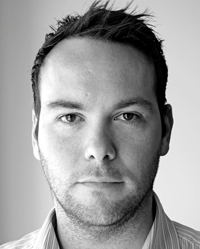A Quote by Richard Rorty
Nowadays, to say that we are clever animals is not to say something philosophical and pessimistic but something political and hopeful - namely, if we can work together, we can make ourselves into whatever we are clever and courageous enough to imagine ourselves becoming. This is to set aside Kant's question "What is man?" and to substitute the question "What sort of world can we prepare for our great grandchildren?
Related Quotes
We are all the time, from our childhood, trying to lay the blame upon something outside ourselves. We are always standing up to set right other people, and not ourselves. If we are miserable, we say, "Oh, the world is a devil's world." We curse others and say, "What infatuated fools!" But why should we be in such a world, if we really are so good? If this is a devil's world, we must be devils also; why else should we be here? "Oh, the people of the world are so selfish!" True enough; but why should we be found in that company, if we be better? Just think of that.
Mr. [Aldous] Huxley has been the alarming young man for a long time, a sort of perpetual clever nephew who can be relied on to flutter the lunch party. Whatever will he say next? How does he think of those things? He has been deplored once or twice, but feeling is in his favor: he is steadily read. He is at once the truly clever person and the stupid person's idea of the clever person; he is expected to be relentless, to administer intellectual shocks.
There are studies that have shown that we make decisions, ethical and otherwise, based on the way we imagine ourselves as characters in the stories of our lives. In other words, if we imagine ourselves brave or crazy or open, we're more likely to make decisions in a given situation based on how we imagine ourselves, whatever the facts may be.
The question of truth is really a question of memory, deep memory, for it deals with something prior to ourselves and can succeed in uniting us in a way that transcends our petty and limited individual consciousness. It is a question about the origin of all that is, in whose light we can glimpse the goal and thus the meaning of our common path.
We all have found ourselves in awkward, embarrassing situations, often brought on by ourselves - thinking we are saying something clever, for example, when it turns out to sound really mean or stupid. Those are the kind of embarrassing situations that we could have avoided. "Welcome to the human race," is about the only comfort we can give ourselves.
Today I believe that man cannot escape his destiny to create whatever it is we make - jazz, a wooden spoon, or graffiti on the wall. All of these are expressions of man's creativity, proof that man has not yet been destroyed by technology. But are we making things for the people of our epoch or repeating what has been done before? And finally, is the question itself important? We must ask ourselves that. The most important thing is always to doubt the importance of the question.









































